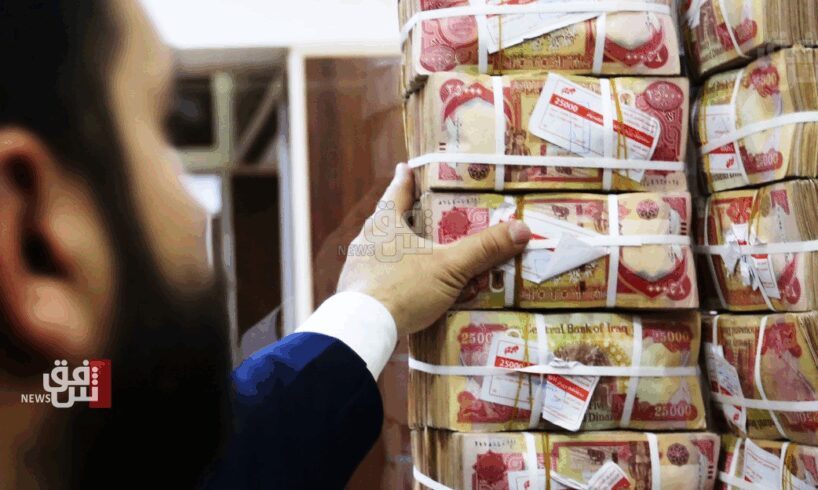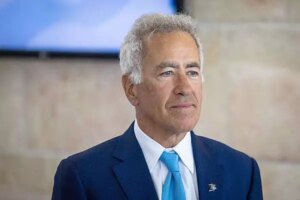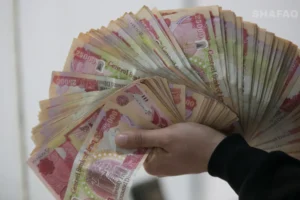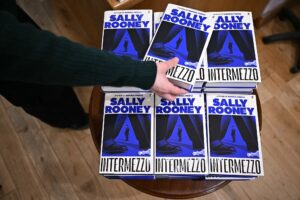
2025-07-14T20:55:59+00:00
font
Enable Reading Mode
A-
A
A+
Shafaq News
The prolonged failure to disburse public sector salaries in
the Kurdistan Region has pushed Baghdad-Erbil relations to a critical juncture.
With over 70 days of unpaid wages affecting nearly 1.5 million employees, the
dispute has intensified political tensions, sparked protests, and raised
questions about the viability of Iraq’s federal framework ahead of the November
parliamentary elections.
While the issue is far from new, recent rounds of high-level
meetings and political outreach have yet to produce a sustainable solution.
“This crisis is not just about unpaid wages—it’s about the
collapse of trust between Baghdad and Erbil,” said Analyst Ranj Alaaldin in
remarks to Shafaq News. “What we’re witnessing is a system failing to deliver
on its most basic obligations.”
Dispute Reignited
The latest escalation came after the delay of May 2025
salaries, and then Prime Minister Mohammed Shia al-Sudani approved a one-time
loan to cover wage payments. The decision, intended to ease hardship ahead of
Eid al-Adha, did little to calm public discontent.
Protests soon erupted in Al-Sulaymaniyah and other cities,
as teachers and civil servants demanded immediate action. At the same time,
Kurdish political parties convened in Erbil to condemn Baghdad’s handling of
the situation, describing the use of salaries as leverage as both
unconstitutional and politically dangerous.
The episode revived a familiar cycle—emergency
disbursements, legal disputes, and mutual accusations—with no permanent
resolution in sight.
To de-escalate tensions, the Leader of the Kurdistan
Democratic Party (KDP), Masoud Barzani, and Iraqi Parliament Speaker Mahmoud
al-Mashhadani met on July 12 to announce a joint initiative. Both figures
highlighted the humanitarian urgency of the issue and called for separating
public entitlements from political conflicts.
The following day, Barzani and Patriotic Union of Kurdistan
(PUK) President Bafel Talabani led a joint meeting of their parties to reaffirm
Kurdish unity on the matter.
“The coordination between the KDP and PUK is critical,”
observed Political Scientist Zana Ahmed. “But without legal guarantees and
implementation mechanisms, unity alone won’t bring results.”
A joint statement from both parties underscored the need for
constructive engagement on constitutional rights and equitable revenue sharing.
Institutional Gaps Exposed
Many experts view the impasse as symptomatic of deeper
dysfunction in Iraq’s fiscal system. Legal Expert Huda Al-Taie described the
situation to Shafaq News as a “recurring pattern in which Baghdad invokes legal
justifications selectively” while avoiding the creation of transparent, lasting
frameworks.
Meanwhile, Prime Minister al-Sudani formed a ministerial
committee to evaluate policy proposals from both sides, focusing on the
transfer of oil and non-oil revenues and a mechanism for salary domiciliation.
A Kurdish political source told Shafaq News later that the
committee is expected to submit its final report on July 15, with
recommendations that could determine whether salaries resume and whether the
KRG agrees to hand over oil exports to SOMO under federal terms.
Political Fallout and Strategic Risks
Inside Parliament, frustration is also mounting. KDP MP
Nasser Yousef Mohi criticized successive federal administrations for
marginalizing the Kurdistan Region despite constitutional guarantees ratified
in 2005. He also questioned the transparency of parliamentary processes, noting
that decisions are frequently crafted behind closed doors and presented for
routine approval.
“What we are witnessing is the erosion of constitutional
order,” argued constitutional scholar Salam Qazaz. “The salary issue reveals
just how politicized and inconsistent Iraq’s fiscal governance has become.”
PUK MP Dilan Ghafour warned that the deadlock is harming
citizens and called for urgent depoliticization of basic services. In her view,
boycotts or withdrawal from the government would only deepen the crisis.
Instead, she emphasized negotiation as the only viable path forward.
Outlook and Consequences
Analysts caution that failure to resolve the dispute could
have far-reaching consequences, undermining the credibility of the upcoming
elections, widening institutional divides, and weakening public confidence in
governance.
Alaaldin warned that external actors could exploit Iraq’s
internal vulnerabilities. “An unresolved Kurdish crisis opens doors for
regional players to deepen instability,” he said. “Baghdad, Erbil, and Iraq’s
neighbors all have a stake in preventing that outcome.”
Much also hinges on stalled national legislation. Iraq’s
inability to pass a comprehensive oil and gas law remains a core obstacle,
leaving federal-regional fiscal ties in legal and political limbo. The path
forward depends on whether Iraq’s leaders choose to entrench old patterns or
lay the groundwork for a more stable arrangement.
Written and edited by Shafaq News staff.





